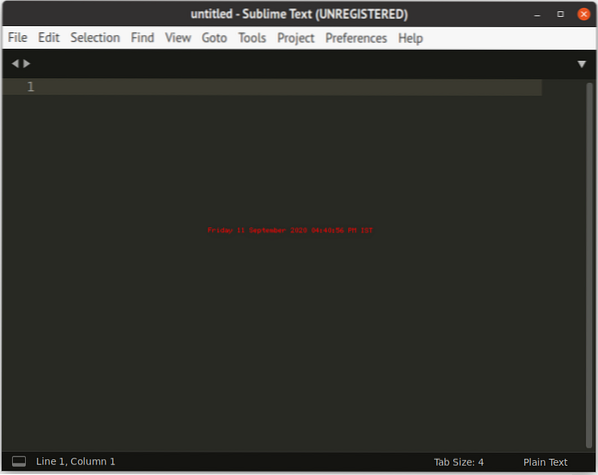In this lesson on Scanner package in Golang, we will study various examples on how to use Scanners in multiple ways in Go programming language. We will get started now.
Starting with Go
Just to make sure we have the environment setup consistently, here is the directory structure which I made for my Hello World program:

Here is the program we created:
package mainimport "fmt"
func main()
fmt.Printf("Hello, world.\n")
We can run the above program with the following command:
go run hello.goOnce we run this command, here is the output you will see:

Now that looks good. Let's move to our main agenda.
Scanner and Bufio Package in Golang
In this post, we will go through the bufio and scanner packages.
We will start with a very simple example to split Strings into multiple words. Let's at the following example:
package mainimport (
"bufio"
"fmt"
"strings"
)
func main()
inputStr := "golang shubham linux"
scanner := bufio.NewScanner(strings.NewReader(inputStr))
scanner.Split(bufio.ScanWords)
for scanner.Scan()
fmt.Println(scanner.Text())
The output of this program will be:
golangshubham
linux
Here, Scanner used buffered input output by reading provided input as a Stream.
Reading a file
Now, let's try reading a file in Go, using bufio to read a file line by line. To do this, first we create a sample file in the same directory as our Go program. Here is our file:

Next, we write our program to read this file line by line:
package mainimport (
"bufio"
"fmt"
"log"
"os"
)
func main()
fileToRead, error := os.Open("./hello.txt")
if error != nil
log.Fatal(error)
defer fileToRead.Close()
scanner := bufio.NewScanner(fileToRead)
for scanner.Scan()
fmt.Println(scanner.Text())
if error := scanner.Err(); error != nil
log.Fatal(error)
Once we run this program, here is the output we will get

Taking User Input with bufio
This is the most useful operation actually to be performed when a user is starting with the Golang language.
We can take a user input like:
package mainimport (
"bufio"
"fmt"
"os"
)
func main()
reader := bufio.NewReader(os.Stdin)
fmt.Print("Enter text: ")
text, _ := reader.ReadString('\n')
fmt.Println(text)
Let's run this program now:

Just to note, there is another way to take input if you are Ok NOT accepting a whitespace in it:
package mainimport "fmt"
var input string
func main()
fmt.Print("Enter Your Name=")
fmt.Scanf("%s",&input)
fmt.Println("Hello "+input)
Let's run this program now:

Conclusion
To study, Scanner and Bufio package in Go is very useful and it is never possible to get enough. Read more examples for the package and try as much as possible on your own.
 Phenquestions
Phenquestions

